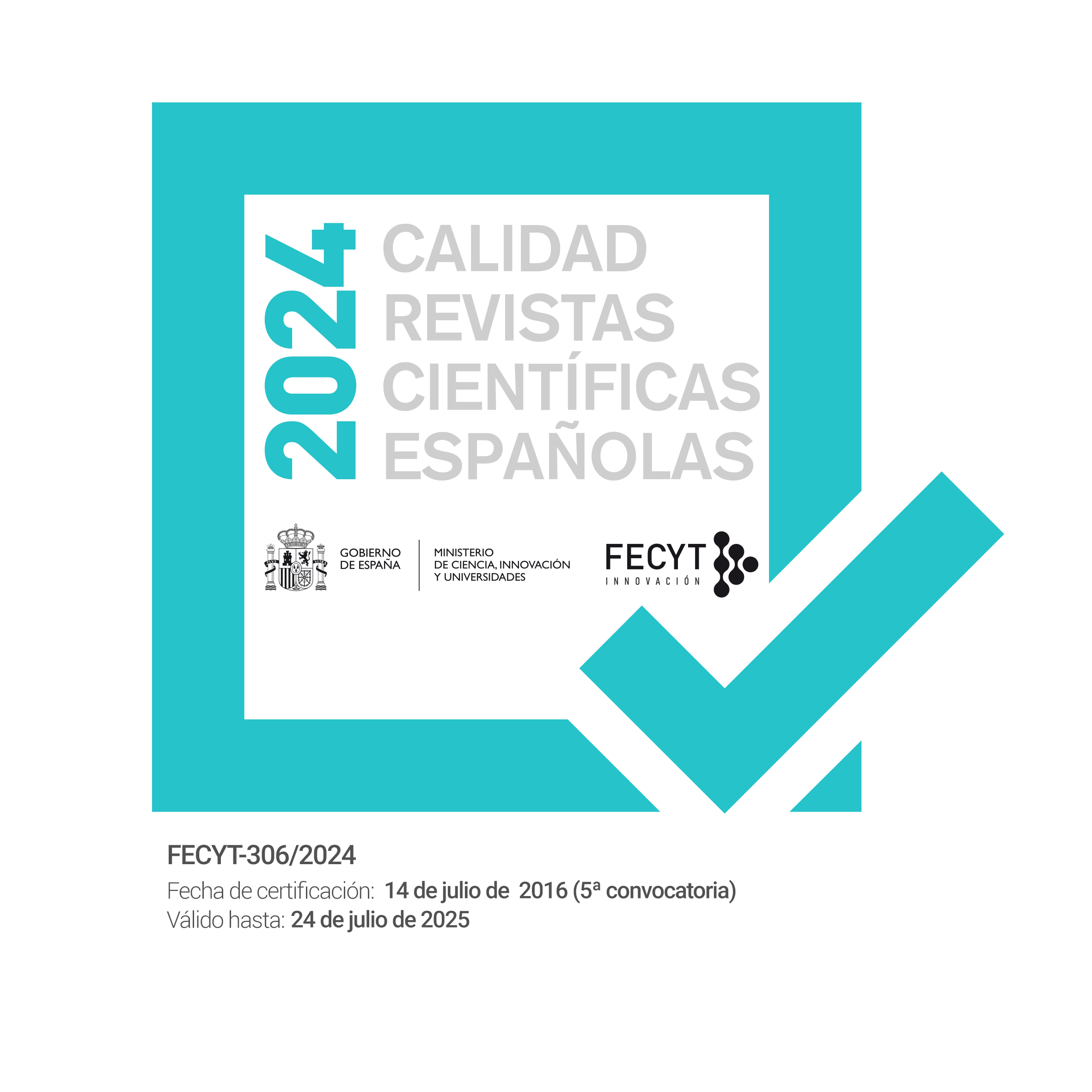The great transformation of economic power: Revolving doors, capital and directors in the Spanish public corporation’s network
DOI:
https://doi.org/10.22325/fes/res.2023.157Keywords:
Interlocking directorates, elites, social network analysis, revolving doors, corporationsAbstract
This article analyse the cohesion within economic power. The hypothesis is that the economic power is cohesive by social, political and economic elements, such as revolving doors from the State to the corporations, and common relations between corporations from shared members of boards of directors and common shareholders. In order to test this hypothesis, a sample with the thirty-five Spanish companies of the IBEX35 stock market index it’s been selected, for four different periods (1991, 2000, 2010, and 2013). Social network analysis has been applied in this study to address the division and cohesive factors of economic power in the different selected years. This research shows the importance of 2008 economic crisis, which lead to a reduction of corporation’s political ties and the decrease of directors who belonged simultaneously to more than one board of directors. In contrast, shareholders, and in particular international capital, become the main element of intermediation between all companies, to the detriment of the political and corporate ties that had dominated in previous periods.
References
Adamic, L. A., & Glance, N. (2005). The political blogosphere and the 2004 US election: divided they blog. Proceedings of the 3rd international workshop on Link discovery, 36-43. https://doi.org/10.1145/1134271.1134277
Aragón Falomir, J, y Cárdenas, J. (2020). Análisis de redes empresariales y puertas giratorias en México: Cartografía de una clase dominante público-privada. Temas y Debates, (39), 81-103. https://doi.org/10.35305/tyd.v0i39.458
Aristóteles (2005). La Política. Madrid: Istmo.
Bellod Redondo, J. F. (2012). Participaciones preferentes: la nefasta experiencia española. Contribuciones a la Economía, (7).
Cabrera, M., y Del Rey, F. (2011). El poder de los empresarios. Política y economía en la España contemporánea (1875-2010). Madrid: Editorial RBA.
Cárdenas, J. (2014). El poder económico mundial: Análisis de redes de "interlocking directorates" y variedades de capitalismo. Madrid: Centro de Investigaciones Sociológicas (CIS).
Cárdenas, J., & Robles Rivera, F. J. (2020). Business elites in Panama: Sources of power and state capture. UNRISD Occasional Paper - Overcoming Inequalities in a Fractured World: Between Elite Power and Social Mobilization, (12).
Castellani, A. (2018). Lobbies y puertas giratorias: Los riesgos de la captura de la decisión pública. Nueva Sociedad, (276), 48-61.
Chu, J. S., & Davis, G. F. (2016). Who killed the inner circle? The decline of the American corporate interlock network. American Journal of Sociology, 122(3), 714-754. http://dx.doi.org/10.2139/ssrn.2061113
Comisión Nacional del Mercado de Valores [CNMV]. (2013). Informe Anual de Gobierno Corporativo. Comisión Nacional del Mercado de Valores. http://www.cnmv.es/DocPortal/Publicaciones/Informes/IAGC_IBEX35_2013.pdf
Cornaggia, J., Cornaggia, K. J., & Xia, H. (2016). Revolving doors on Wall Street. Journal of Financial Economics, 120(2), 400-419. https://doi.org/10.1016/j.jfineco.2016.01.007
Cortés García, F. J. (2003). Caracterización del sector bancario en España. Boletín económico de ICE, Información Comercial Española, (2753), 17-22.
Costa, J. (1993 [1903]). Oligarquía y caciquismo: colectivismo agrario y otros escritos. Madrid: Alianza Editorial.
Dahrendorf, R. (1979). Las clases sociales y su conflicto en la sociedad industrial. Madrid: Ediciones Rialp.
Díaz Roldán, M. D. C. (2007). La política monetaria en España: evolución reciente e implicaciones macroeconómicas. Información Comercial Española, ICE: Revista de economía, (837), 21-30. https://doi.org/10.1017/S0212610900001695
Fernández Rodríguez, Á. (2010). Bolsa y su entorno en España y Francia. Presses Univ. du Mirail. https://doi.org/10.7202/1036958ar
Financial Crisis Inquiry Commission,. (2011). The financial crisis inquiry report: The final report of the National Commission on the causes of the financial and economic crisis in the United States including dissenting views. Cosimo, Inc. https://www.govinfo.gov/content/pkg/GPO-FCIC/pdf/GPO-FCIC.pdf,
Galbraith, J. K. (1984). El nuevo estado industrial. Madrid: Ariel.
Gebhardt, M., & Saz-Carranza, A. (2018). European Revolving Doors: Corporate Boards in Germany and Spain. ESADEgeo Working Paper, 30.
Girvan, M., & Newman, M. E. (2002). Community structure in social and biological networks. Proceedings of the national academy of sciences, 99(12), 7821-7826. https://doi.org/10.1073/pnas.12265379
Glattfelder, J., Battiston, S. (2019). The architecture of power: Patterns of disruption and stability in the global ownership network. SSRN. https://doi.org/10.2139/ssrn.3314648
Gramsci, A. (1977). Política y sociedad. Madrid: Península.
Heemskerk, E. M., Fennema, M., & Carroll, W. K. (2016). The global corporate elite after the financial crisis: evidence from the transnational network of interlocking directorates. Global Networks, 16(1), 68-88. https://doi.org/10.1111/glob.12098
Hellman, J., y Kaufmann, D. (2001). La captura del Estado en las economías en transición. Finanzas y Desarrollo, 38(3), 31-35.
Higley, J., y Burton, M. G. (1989). The Elite Variable in Democratic Transitions and Breakdowns. American Sociological Review, 54(1), 17–32. https://doi.org/10.2307/2095659
Hilferding, R. (1963 [1910]). El Capital Financiero. Madrid: Editorial Tecnos.
Jessop, B. (2007). State power. Cambridge: Polity.
Jessop, B. (1983). Accumulation strategies, state forms, and hegemonic projects. Kapitalistate, 10, 89-111. https://doi.org/10.1007/978-1-349-21464-8_5
Jessop, B. (1990). State theory: putting the Capitalist state in its place. Cambridge: Polity Press.
Jessop, B. (2004). Multi-level governance and multi-level meta-governance. In Bache, L., & Flinders, M. (Eds.), Multi-Level Governance (pp 49-74). Oxford: OUP. https://doi.org/10.1093/0199259259.001.0001
Kadushin, C. (1968). Power, Influence and Social Circles: A New Methodology for Studying Opinion Makers. American Sociological Review, 33(5), 685. https://doi.org/10.2307/2092880
Knoke, D., & Yang, S. (2008). Social network analysis (Vol. 154). Sage. https://doi.org/10.4135/9781412985864
Lenin, V. (2012 [1916]). El Imperialismo, fase superior del capitalismo. Madrid: Taurus.
Lukes, S. (1985). El poder. Un enfoque radical. Madrid: Siglo XXI.
Meisel, J. H. (1962). El mito de la clase gobernante: Gaetano Mosca y la élite. Buenos Aires: Amorrortu.
Michels, R. (2003). Los partidos políticos: un estudio sociológico de las tendencias oligárquicas de la democracia moderna. Buenos Aires: Amorrurtu
Mizruchi, M. S. (1996). What do interlocks do? An analysis, critique, and assessment of research on interlocking directorates. Annual review of sociology, 22, 271-298. https://doi.org/10.1146/annurev.soc.22.1.271
Mizruchi, M. S. (2013). The fracturing of the American corporate elite. In The Fracturing of the American Corporate Elite. Harvard University Press.
Mizruchi, M. S., & Stearns, L. B. (1988). A longitudinal study of the formation of interlocking directorates. Administrative Science Quarterly, 33(2), 194-210. https://doi.org/10.2307/2393055
Montalvo, J. G. (2002). La vivienda en España: desgravaciones, burbujas y otras historias. Barcelona: Universitat Pompeu Fabra.
Mosca, G. (1984 [1901]). La clase política. México: Fondo de Cultura Económica.
Naredo, J. M. (2009). La cara oculta de la crisis. El fin del boom inmobiliario y sus consecuencias. Revista de Economía Crítica, (7), 118-133.
Ougaard, M. (2015). The reconfiguration of the transnational power bloc in the crisis. European Journal of International Relations 22(2), 1-24. https://doi.org/10.1177/1354066115589616
Pareto, V. (2009 [1901]). The rise and fall of the elites. New Jersey: Transactions Publishers.
Pizarro, N. (1998). Tratado de metodología de las ciencias sociales. Madrid: Siglo XXI editores.
Poulantzas, N. (1976 [1968]). Poder político y clases sociales en el Estado capitalista. Madrid: Siglo XXI editores.
Poulantzas, N. (2005 [1978]). Estado, poder y socialismo. Madrid: Siglo XXI editores.
Rodríguez, E., y López, I. (2010). Fin de ciclo: financiarización, territorio y sociedad de propietarios en la onda larga del capitalismo hispano (1959-2010).
Rodríguez, J (2000). El círculo del poder: La estructura social del poder económico en la España de los noventa. Sistema. Revista de Ciencias Sociales, (158), 53-89.
Rodríguez, J. (2003). Revisitando el poder: cambios en la estructura del poder económico español (1991-2000). Sistema: Revista de ciencias sociales, (172), 3-26.
Santos Castroviejo, I. (2008). Una aproximación a la red social de la elite del poder económico en España. XI Jornadas de Economía Critica.
Santos Castroviejo, I. (2014). Élites del poder económico en España en 2013. Transformaciones en las redes de gobierno empresarial durante la crisis. Servizo de Publicacións da Universidade de Vigo.
Schorr, M. (2001). ¿Atrapados sin salida? La crisis de la Convertibilidad y las contradicciones en el bloque de poder económico. Documento de Trabajo de FLACSO. https://biblioteca-repositorio.clacso.edu.ar/bitstream/CLACSO/714/3/schorr.pdf
Scott, J. (1985). Corporations, classes, and capitalism. Hutchinson Educational.
Scott, J. (2000). Social Network Analysis: A handbook. London. SAGE publications. https://doi.org/10.1177/0038038588022001007
Shepherd, M., & You, H. (2020). Exit Strategy: Career Concerns and Revolving Doors in Congress. American Political Science Review, 114(1), 270-284. https://doi.org/10.1017/S0003055419000510
Simmel, G. (1986). Sociología: estudios sobre las formas de socialización (Tomo I y IV). Madrid: Alianza editorial.
Sklair, L. (2002). The transnational capitalist class and global politics: deconstructing the corporate-state connection. International Political Science Review, 23(2), 159-174. https://doi.org/10.1177/0192512102023002003
Tamames, R., y Huerta, A. (2014). Estructura económica de España. Madrid: Alianza Editorial.
Tamames, R., y Rueda. A. (2008). Estructura económica de España. Alianza Editorial.
Thurner, P. W., & Pappi, F. U. (2009). European Union intergovernmental conferences: domestic preference formation, transgovernmental networks and the dynamics of compromise. Routledge. https://doi.org/10.4324/9780203879702
Uribe López, M. (2012). La aversión del bloque en el poder al contrato fiscal en Colombia: Breve evidencia histórica. Co-herencia, 9(16), 247-271. https://doi.org/10.17230/co-herencia.9.16.9
Useem, M. (1984). The inner circle: Large corporations and the rise of business political activity in the US and UK. Oxford University Press.
Vera Canelo, P., Castellani, A. G., y Gentile, J. N. (2018). Articulación entre elites económicas y elites políticas en el gabinete nacional de Mauricio Macri (2015-2018). En Elites y captura del Estado: Control y regulación en el neoliberalismo tardío (pp. 117-135). Buenos Aires: Facultad Latinoamericana de Ciencias Sociales.
Villena-Oliver, A. (2014) La constitución de un gobierno como acumulación de poder relacional. Estudio de dos ejecutivos en España Redes. Revista Hispana para el Análisis de Redes Sociales, 25(1), 19-48. https://doi.org/10.5565/rev/redes.478
Villena-Oliver, A., y Aldeguer-Cerdá, B. (2017). La importancia de los gobernantes invisibles en la democracia. Un estudio de la" estructura de poder latente" de dos Gobiernos en España (2004 y 2012). Revista española de ciencia política, (45), 67. https://doi.org/10.21308/recp.45.03
Wasserman, S., y Faust, K. (2013). Análisis de redes sociales. Métodos y aplicaciones (Vol. 10). Madrid: Centro de Investigaciones Sociológicas (CIS).
Wright Mills, C. W. (1956). The Elite Power. Oxford. Oxford University Press.
Zabludovsky, G. (1986). Max Weber y la dominación patrimonial en América Latina. Revista Mexicana de Ciencias Políticas y Sociales, 23. https://doi.org/10.22201/fcpys.2448492xe.1986.124.71938
Published
How to Cite
Issue
Section
License
Copyright (c) 2023 Rubén Juste de Ancos

This work is licensed under a Creative Commons Attribution-NonCommercial 4.0 International License.
• The transfer of the copyright of the article to Revista Española de Sociología.
• The assignment to the Revista Española de Sociología of the rights of commercial exploitation of the article to third parties both in the offset and digital formats, as well as to the search engines and platforms that may serve as intermediaries for the sale or knowledge of the article.




